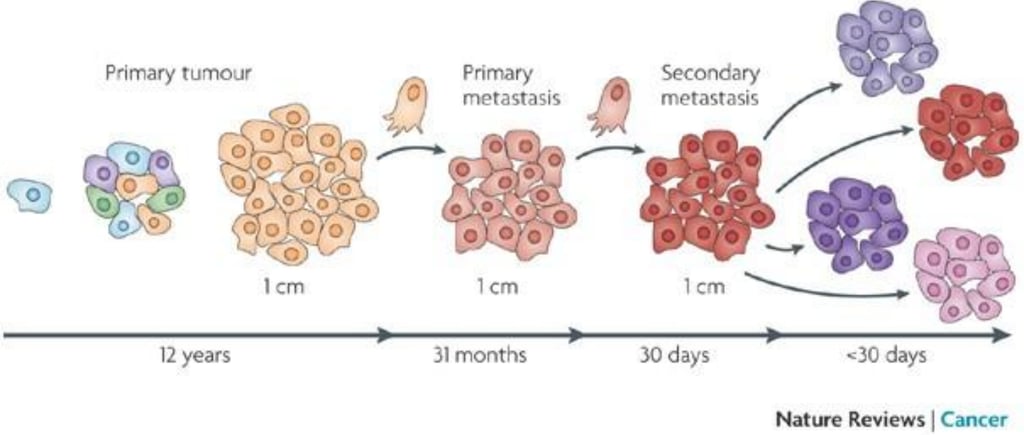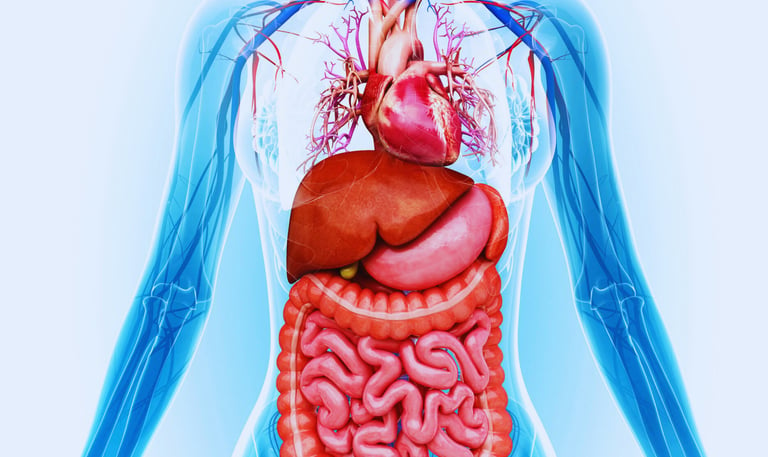About Cancer


Cancer is not a single disease but a general term for a large group of diseases. Our bodies are made up of trillions of cells that normally grow, divide, and die in an orderly manner, being replaced by new cells to maintain normal bodily functions. Cancer arises when this precise process is disrupted—when certain cells acquire abnormal, uncontrolled growth capabilities due to genetic mutations.
These abnormal cells can form masses called tumours. Tumours can be benign or malignant. Benign tumours do not invade other tissues, whereas malignant tumours are cancerous. They invade and destroy surrounding healthy tissues and can spread to other parts of the body through the blood or lymphatic systems to form new tumours, a process known as metastasis.
Impacts of Cancer
The impact of having cancer is systemic and multifaceted, far more than just having a tumour.


Local Effects
Tumour growth can press on surrounding organs, nerves, or blood vessels, causing pain, obstruction (e.g., bowel, airway), bleeding, or dysfunction.


Systemic Effects
Cachexia: A complex metabolic syndrome leading to severe muscle wasting, fatigue, weakness, and loss of appetite that cannot be alleviated by eating. It is a major cause of debilitation in cancer patients.
Fatigue: Cancer-related fatigue is a persistent and distressing sense of tiredness not relieved by rest, significantly impacting quality of life.
Paraneoplastic Syndromes: Indirect effects caused by cancer, where substances produced by cancer cells can trigger symptoms in remote parts of the body, such as neurological issues, hormonal abnormalities, or blood clots.


Psychological and Emotional Impact
Shock, fear, anxiety, and uncertainty following diagnosis.
Concerns about treatment, financial burden, family roles, and the future.
Depressive mood is very common.


Effects of Treatment
Surgery, radiotherapy, chemotherapy, targeted therapy, and immunotherapy damage normal cells while attacking cancer cells, leading to a range of side effects like hair loss, nausea and vomiting, reduced immunity, mouth sores, and skin changes.
The Role of Hydrogen Gas in Cancer
Hydrogen gas, with its selective antioxidant and anti-inflammatory properties, has shown potential in supportive cancer care. Mechanisms of action are:
Hydrogen selectively neutralizes harmful free radicals (e.g., OH·), reducing oxidative stress without disrupting beneficial reactive oxygen species signaling.
Antioxidant Effect
Anti-inflammatory Effect
By inhibiting pro-inflammatory cytokines (e.g., TNF-α, IL-6), hydrogen may suppress inflammation in the tumor microenvironment.
Chemo-Enhancement and Side Effect Reduction
Studies suggest hydrogen may enhance the efficacy of certain chemotherapy drugs while alleviating side effects such as nausea, fatigue, and myelosuppression.
Potential Therapeutic Applications
As an Adjuvant to Radiotherapy and Chemotherapy
Although most research is still in the preclinical stage, hydrogen has shown broad application prospects in the following areas of cancer management:
Radiotherapy and chemotherapy kill cancer cells by generating a large number of free radicals, but they also damage normal tissues. The antioxidant properties of hydrogen can be used to protect normal cells, mitigate side effects (e.g., radiation dermatitis, oral mucositis, fatigue), thereby improving patients' quality of life and treatment tolerance.
Improving Cancer Rehabilitation and Quality of Life
Patients in cancer rehabilitation often suffer from chronic inflammation and fatigue. Hydrogen may help restore physical strength, improve mood and sleep by ameliorating oxidative stress and inflammation.
Cancer Prevention and Immune Regulation
Chronic oxidative stress is a risk factor for cancer. By reducing systemic oxidative damage, hydrogen may potentially lower cancer risk. Furthermore, its immunomodulatory potential may aid the body's immune system in surveilling and eliminating abnormal cells.
The Role of Amino Acids in Cancer


Amino acids, as the building blocks of proteins, play vital roles in nutrition, immune function, and metabolism in cancer patients.
Key Roles Include:
Nutritional Support and Muscle Maintenance: Cancer patients often experience muscle wasting (cachexia). Supplementing with essential amino acids (e.g., leucine, valine) helps maintain muscle mass and strength.
Immune Modulation: Amino acids like glutamine and arginine support immune cell function and enhance anti-tumor immunity.
Antioxidant and Detoxification: Cysteine, a precursor to glutathione, helps combat oxidative stress and chemotherapy-induced toxicity.
Gut Health Support: Glutamine supports intestinal barrier integrity, reducing infection and inflammation risks.
Summary
Hydrogen gas and amino acids show multi-faceted potential in supportive cancer care. Hydrogen exerts effects through antioxidant, anti-inflammatory, side-effect-reducing, and quality-of-life-improving mechanisms, while amino acids are essential for nutrition, immunity, metabolism, and cachexia management.
They are not direct replacements for conventional therapies but serve as important components of Comprehensive Cancer Care, aiming to enhance treatment outcomes and improve patients' quality of life.
Further clinical trials are needed to validate their efficacy and safety, but current evidence provides a strong scientific basis for their application in oncology.
What Are You Waiting For?
WhatsApp us to start your adjunctive therapy today!
Bio Young Wellness
Look Young, Feel Young, Stay Young
Contact Us
Bio Young Wellness Sdn. Bhd. @ 2024. All rights reserved.
support@bioyoungwellness.com
Quick Links
202101020499(1420799-P)
